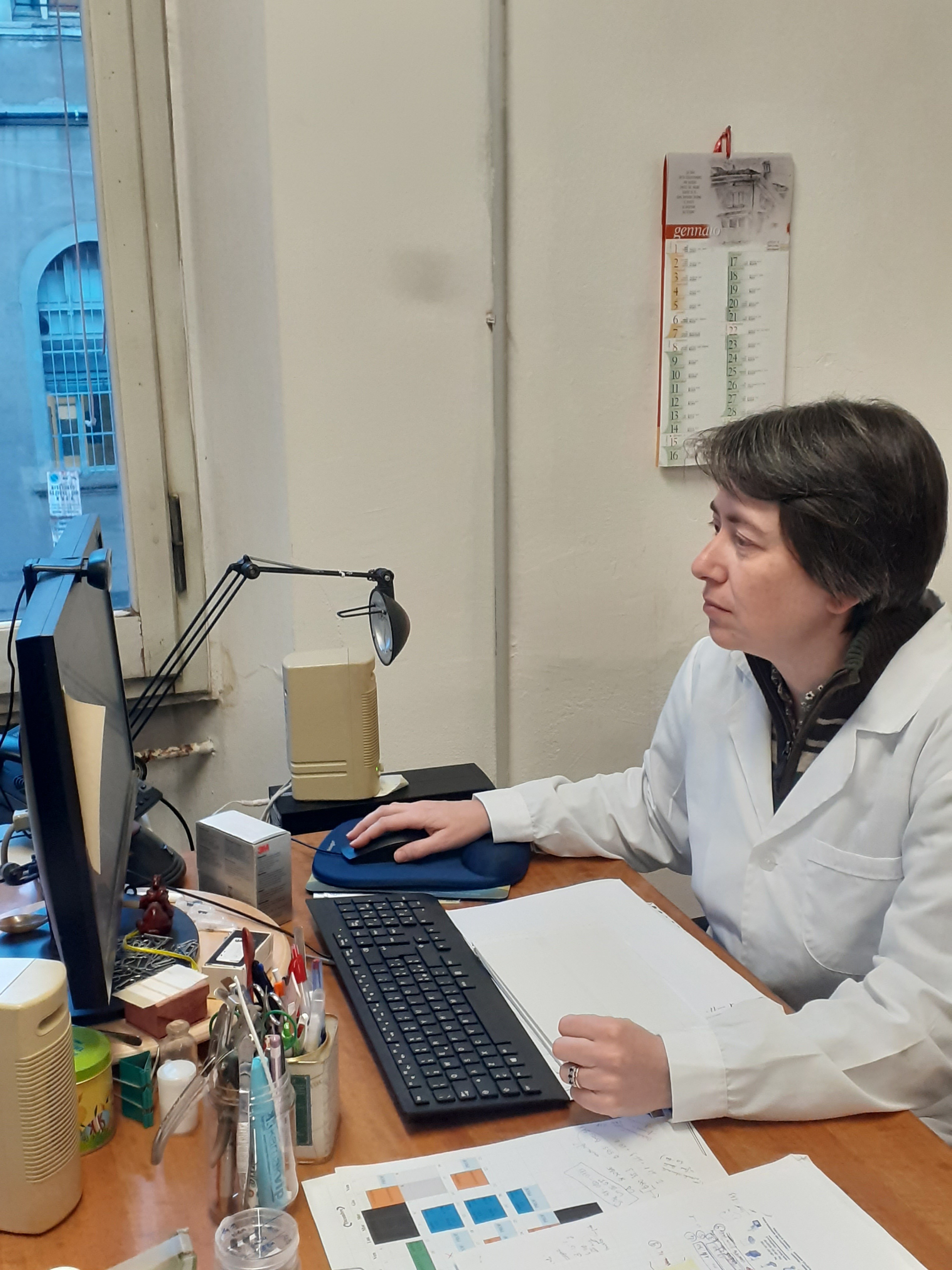Interview with Prof. Dr. Elisa Boanini—Winner of the JFB 2022 Outstanding Reviewer Award

Prof. Dr. Elisa Boanini is an Associate Professor of inorganic chemistry at the University of Bologna, Department of Chemistry “Giacomo Ciamician”. She received her master’s degree in chemistry from the same university in 1998 with an experimental thesis about the structure and stability of octacalcium phosphate and its interactions with polyacrylic acid. In 2003, she earned her Ph.D. in chemical sciences under the supervision of Prof. Dr. Adriana Bigi, with a thesis on the biomimetic approaches to the design of new polymeric–inorganic materials. During her Ph.D. studies, she was also in the group of Prof. Dr. Stephen Mann, School of Chemistry, University of Bristol. Between 2008 and 2010, she spent some research periods in the laboratory of Prof. Dr. Matthias Epple (Institut für Anorganische Chemie, Universitat Duisburg-Essen) as part of the joint project Vigoni (Italy–Germany). In 2011, she was awarded the “Nardelli Prize” from the Italian Association of Crystallography. She served as an Editorial Board Member for Heliyon (Elsevier-Cell Press) from 2015 to 2020 and she has served for the Journal of Functional Biomaterials (MDPI) since 2019. She is a Guest Editor for Special Issues in JFB and Nanomaterials. She is a co-author of more than 100 papers in international journals and has presented many invited talks and oral communications at national and international conferences.
1. Can you tell us a little bit about your fields of interest?
I study the chemical and structural aspects of calcium phosphates of biological interest as model systems for the design of new materials and, in particular, biomaterials with potential for use in the orthopedic field. I am interested in methods of biomimetic synthesis for the preparation of functionalized inorganic nano- and micro-crystals, and in the analysis of the structural and morphological modifications induced by bioactive molecules and ions on calcium phosphate-based materials.
2. Which research topics do you think will be of particular interest to the research community in the coming years?
I think that mankind will have to face many important challenges, since the world is changing so much and so fast. Research could be a key factor in many fields. Close to my research topic, the increased life expectancy in the world has led to a serious rise in the number of age-related musculoskeletal disorders, and hence to an increasing demand for materials for the repair and substitution of damaged tissues. The development of this research requires a strong integration of skills in the fields of material science, inorganic and organic chemistry, pharmacology, biology and computational chemistry, aiming toward a multidisciplinary design of multifunctional biomimetic and bioactive materials.
3. Can you briefly describe the key to a happy laboratory life?
When I was a student, I remember my enthusiastic professor of crystal engineering saying that he was a lucky man because he was paid to do his hobby as a job. Unfortunately, in the following years I realized that your career in academia means your role changes and therefore your job. It starts from the laboratory and easily ends up in an office. Actually, I never lost contact with the lab as a physical place, and I like to conduct some experiments myself or guide students in their first steps when I have time. The secret is to carve out a space and a time that is exclusively for you and your team: the rest can wait. Curiosity must be your inspiration, and you must not be in a hurry. In fact, the academy was born historically as something extraneous to the outside world, in which critical thinking and the desire for knowledge are in command.
4. What is your opinion of the Open Access model?
I think that knowledge should be open to everybody in the world, so Open Access journals are a great resource for readers. On the other hand, for economic sustainability, these kinds of journals require an effort from authors that is not always possible and can sometimes cause problems, especially when your research is curiosity-driven and has no specific financial support. I really appreciate the recognition that MDPI gives to reviewers for helping them in publishing their own works, which I think is a very smart idea.
5. As the winner of this award, is there something you would like to express?
Sincerely, I was surprised when I was informed that I had been selected as the winner of the JFB 2022 Outstanding Reviewer Award. I have always tried to carry out the role of the reviewer with the utmost attention, even if this is an additional task to my already numerous commitments. Of course, it takes time and you could be writing your own papers in the meantime. But when you submit your manuscript, you always hope that the reviewer knows the subject well and evaluates your work carefully, don’t you?
